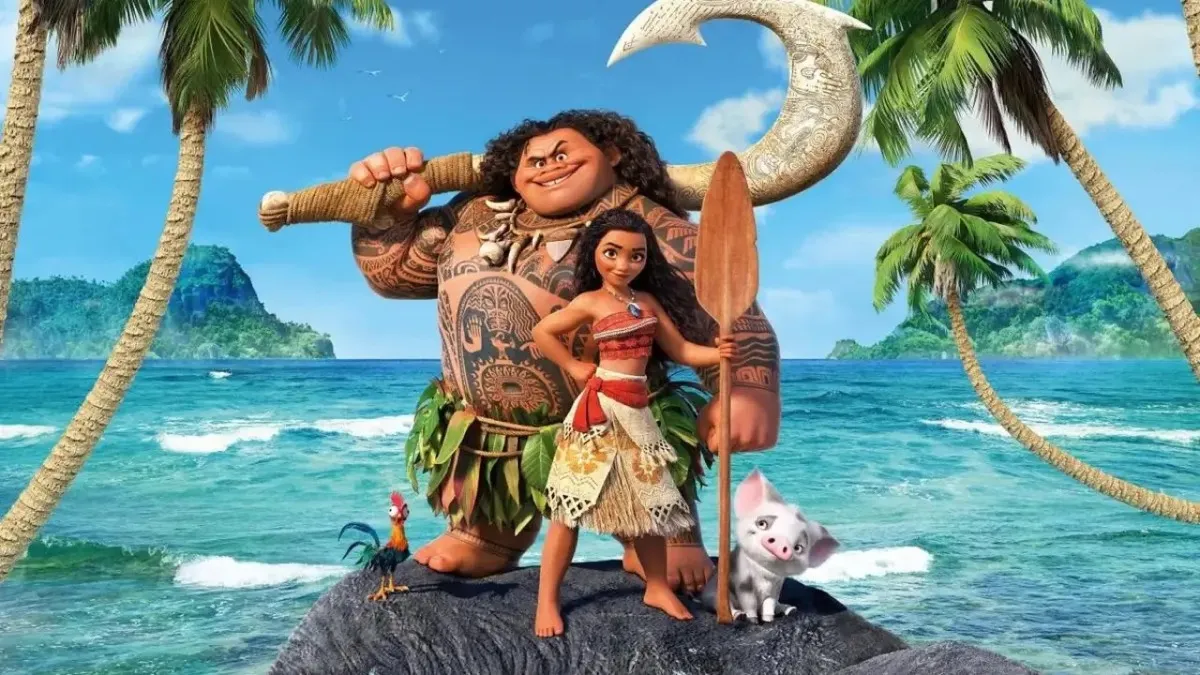Earlier this week, it was announced that a live-action adaptation of Moana is now in the works. My first reaction was simply “Why?” I may be an old biddy, but college wasn’t that long ago for me, and I distinctly remember going to see the movie with my roommates when it first released. In other words, it simply hasn’t been long enough for a live-action rendition of this movie. As it is, live-action remakes are already on thin ice for a lot of people, but this just feels excessive.
Then, another thought crossed my mind: There are so many fantastic Pacific Islander stories out there waiting to be told, and it feels diminishing that we’re instead giving the filmmaking money to a story that’s already been trotted around. In fact, Moana hasn’t just been trotted—that prize-winning pony’s done multiple laps around the block. It’s obvious that this decision is being made in large part because it’ll make Disney a lot of money, regardless of quality (or Dwayne Johnson’s alleged ego).
Don’t get me wrong; Moana is a beautiful film and its story is equally beautiful and worthy of attention. That isn’t the problem here. The problem is Disney is milking something that made them a lot of money, and knowing the nature of Hollywood filmmaking, it’s frustrating that we’re not putting equal stock into other stories from Pacific Islanders.
Most major films that take place in the Pacific aren’t actually centered on the people who actually live there, and if they are, they tend to pull the whole “looks white but is actually Native” schtick—which, as a white-passing Asian person myself, I’ll say isn’t inherently bad, but it becomes a problem when these films don’t actually cast people of color. For instance, the film The Descendants starred George Clooney as the descendant of a Hawaiian king. And though the film’s heart was good, come on, Clooney? As a Hawaiian? (Where this film gets a small pass is it was based on a book written by a Hawaiian woman, Kaui Hart Hemmings, who had a large role in writing the film’s script.)
Honestly, the only two major films I can think of that have centered on Islander narratives were both by Taika Waititi, Boy and Hunt for the Wilderpeople. Waititi even has a film coming out this year that will center on Samoans: Next Goal Wins, about a Samoan football team, and featuring a Polynesian cast. With the quality of Waititi’s films, I already know it will be fantastic, but surely we can expand the board for other Polynesian filmmakers to tell their stories, as well!
Already, I can think of a story that would be perfect for a film adaptation: Kawai Strong Washburn’s 2020 novel, Sharks in the Time of Saviors. Here is the plot summary, per Goodreads:
In 1995 Kailua-Kona, Hawaii, on a rare family vacation, seven-year-old Nainoa Flores falls overboard a cruise ship into the Pacific Ocean. When a shiver of sharks appears in the water, everyone fears for the worst. But instead, Noa is gingerly delivered to his mother in the jaws of a shark, marking his story as the stuff of legends.
Nainoa’s family, struggling amidst the collapse of the sugarcane industry, hails his rescue as a sign of favor from ancient Hawaiian gods – a belief that appears validated after he exhibits puzzling new abilities. But as time passes, this supposed divine favor begins to drive the family apart: Nainoa, working now as a paramedic on the streets of Portland, struggles to fathom the full measure of his expanding abilities; further north in Washington, his older brother Dean hurtles into the world of elite college athletics, obsessed with wealth and fame; while in California, risk-obsessed younger sister Kaui navigates an unforgiving academic workload in an attempt to forge her independence from the family’s legacy.
When supernatural events revisit the Flores family in Hawaii – with tragic consequences – they are all forced to reckon with the bonds of family, the meaning of heritage, and the cost of survival.
Washburn, Macmillan
If this sounds dope as all hell, that’s because it is. This book was one of my favorite reads from the last few years, and it had me glued to my seat (and couch, and car, and any available park bench) for the time it took me to read it. Moreover, its fantastical story, combined with its fantastic narrative structure, would make it a very naturally gripping story to watch as a film.
More to the point, this is a story about Polynesians, told with intense love and personal ties. I’m writing this article because the particular struggles that Islanders go through are often overlooked, because mainlanders often only think of their homes as tourism destinations. That’s some bullshit. These are people’s homes, with entire histories that go overlooked due to greed, vice, and plain old colonialism. And I think these stories deserve to be told without the caveat that they’ll sell extra dolls at Disneyland.
(featured image: Disney)










Published: Apr 4, 2023 04:19 pm